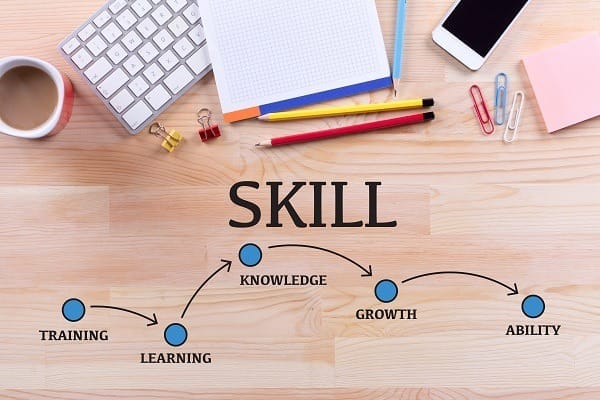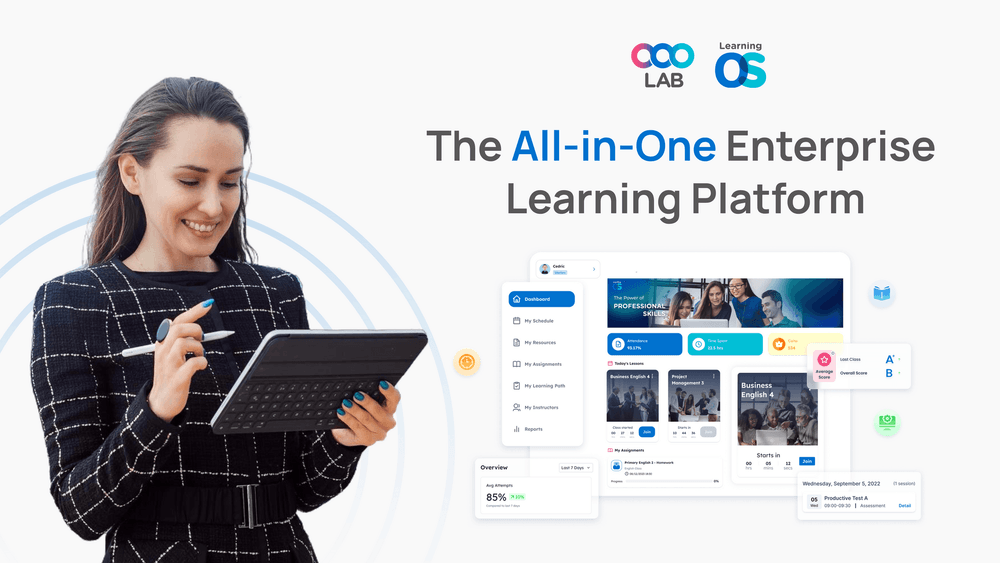

Corporate training is evolving at a rapid pace to meet the demands of an increasingly competitive and technologically advanced business environment. One of the most critical factors in ensuring a successful, agile workforce is the development of competencies that directly contribute to a higher Skill Quotient (SQ). In this blog, we will explore how competency development plays a pivotal role in enhancing Skill Quotient, its importance in corporate training, and how tools like Enterprise LMS and sales training programs can drive this improvement.

Competency development refers to the process of enhancing an individual’s or team’s specific abilities, skills, and knowledge required to perform tasks efficiently and effectively in their roles. These competencies may include technical expertise, problem-solving abilities, adaptability, and interpersonal skills. As organizations strive to meet the challenges of rapid technological advancements and shifting market demands, developing competencies becomes essential to improving Skill Quotient.
Skill Quotient (SQ) measures an individual’s or team’s proficiency in applying their competencies to real-world situations. By developing and refining these competencies, employees are better prepared to meet current and future business challenges. High SQ ensures that teams are not only proficient in their roles but also adaptable to change, innovative, and capable of driving business growth.
>>> Read more: Skill Quotient Training Tool
>>> Read more: Why Is Skill Quotient Important for Employees?
>>> Read more: How To Measure Skill Quotient In Employees?
>>> Read more: Mastering Skill Quotient Measurement: Key Metrics and Strategies for Accurate Assessment
>>> Read more: Social Quotient Vs Skill Quotient: A Comprehensive Analysis
>>> Read more: Skill Quotient Assessment Tools: Unlocking Employee Potential
Competency development helps employees master the skills required to excel in their roles, leading to increased productivity and better performance. Research from the World Economic Forum highlights that 40% of core skills are expected to change by 2025, making continuous competency development essential.
Competency development promotes a culture of lifelong learning. With advancements in technology, industries are evolving, requiring employees to stay up-to-date with new tools, processes, and best practices. Continuous development of competencies ensures that employees remain relevant and valuable in their roles.
In today’s fast-paced business environment, agility is crucial. Competency development equips employees with the ability to adapt to new technologies and changing industry standards, enhancing their Skill Quotient and ensuring they are prepared to handle emerging challenges.
Book Free Demo with us. Bring your Training and Learning to a new height with LearningOS.

Technical competencies involve specific skills such as coding, data analysis, or financial modeling. These are essential for roles that require a deep understanding of particular processes or tools.
Soft skills such as communication, leadership, emotional intelligence, and teamwork are vital for effective collaboration and relationship management. These abilities help employees navigate complex work environments and interact with clients or stakeholders more effectively.
Competency development also focuses on enhancing problem-solving and critical thinking skills. These skills are crucial for innovation and making well-informed decisions, which drive business growth.
Learning agility is the ability to quickly acquire and apply new knowledge. This competency ensures employees can adapt to evolving roles and technologies, ultimately boosting their SQ.
Competency development helps organizations identify areas where employees may lack essential skills. By addressing these gaps through targeted training programs, companies can improve their Skill Quotient and overall workforce capabilities.
Investing in high-quality training programs is only valuable when they yield measurable outcomes. Competency development ensures that these initiatives provide a return on investment by focusing on areas that directly enhance business performance.
Employees are more engaged when they see opportunities for growth and skill improvement. Competency development initiatives help foster a sense of achievement and motivation, leading to higher levels of job satisfaction and retention.
Enterprise LMS platforms play a pivotal role in competency development by offering personalized learning paths, real-time assessments, and interactive features. These platforms ensure that employees receive tailored training that aligns with their specific competency needs. According to research from ElearningIndustry, 70% of organizations using LMS report improved skill development outcomes.
Artificial Intelligence (AI) enhances competency development by providing adaptive learning experiences. AI-powered systems analyze employee performance and recommend relevant training programs, ensuring employees continually improve their competencies.
Competency development is particularly valuable in sales training, where mastering communication, negotiation, and customer relationship management directly impacts business success. Enterprise LMS systems integrated with CRM tools provide targeted, role-specific training that boosts sales performance.
Regular competency assessments help track employee progress and ensure continuous improvement. These assessments may include practical exercises, simulations, and case studies to evaluate skill mastery comprehensively.
To maintain a high Skill Quotient, organizations must promote continuous learning. This can be achieved by providing access to e-learning libraries, participating in industry webinars, and attending professional development workshops.
Advanced analytics within Enterprise LMS platforms offer valuable insights into employee performance and skill development. These insights enable organizations to refine their competency development strategies and ensure alignment with business objectives.
Competency development ensures that employees are equipped with the skills needed to handle complex tasks, improving overall productivity and efficiency.
Organizations that prioritize skill development see higher employee retention rates. Offering continuous learning opportunities demonstrates a commitment to employee growth, fostering loyalty and engagement.
A well-developed, competent workforce enables organizations to innovate and adapt more effectively, providing a significant competitive advantage in the market.
Competency development initiatives aligned with organizational goals ensure that employees contribute meaningfully to business success, enhancing both individual and collective achievements.
Competency development is essential for enhancing Skill Quotient, ensuring that employees are prepared to meet current and future business challenges. By integrating innovative tools like Enterprise LMS and sales training programs, organizations can drive continuous learning and improvement, creating a more agile, competent, and engaged workforce.
At OOOLAB (pronounced 'uːlæb'), our mission is to make complex learning operations simple. We aim to positively impact the lives of over 1,000,000 learners and educators by the end of 2026.
OOOLAB's LearningOS provides educational institutions and corporate enterprises with an all-in-one solution to create and deliver engaging learning experiences.
We meet organizations' needs or support your growth. We provide undivided attention. We provide:
1. Dedicated success manager: We offer direct communication with a real human who'll discuss your enterprises unique learning operations and goals.
2. Personalized setup: Our team will help you transition to LearningOS on your schedule, one step at a time.
3. Around the clock support: Get help from us any time, and in any time zone.
We have recently launched a new AI training tool, Skill Quotient OS, designed to elevate hybrid training to new heights. It offers role-play exercises with scenarios and assessments.This tool can apply in sales training, corporate development and customer support training in any industry.
Reach out to us at: LinkedIn, Facebook, Instagram, Tiktok, X
1. What are the main benefits of LearningOS
Our platform is easy to use and automates all aspects of your learning operations. It efficiently manages complex tasks, allowing you to concentrate on delivering exceptional learning experiences.
2. What main features does LearningOS offer?
Our all-in-one software solution combines a Content Management System, a Learning Management System, content authoring tools, and a mobile friendly Learner Portal.
3. Can your platform be used for corporate enterprises?
Absolutely! LearningOS is an Enterprise LMS is a great fit for corporate learning. In fact, we have clients with up to 700,000 employees using LearningOS! Upskill your workforce by creating and assigning interactive eLearning content while effortlessly tracking employee progress.
4. Who currently uses your platform?
Our platform is currently used by over 120,000+ learners, parents, and employees across 21 countries worldwide!
5. What types of content options are available on your platform?
We offer ready-to-go curriculums for various educational purposes or our expert design team can build a custom course for you. We can also upload your existing learning materials and enhance them digitally.
6. What is unique about LearningOS?
Our platform, designed by educators for educators, provides you with all the tools you need to scale. Build and promote your own hybrid and blended learning courses and save money on licensing fees by owning your own proprietary content.
7. How can I get started?
Schedule a meeting with our experts and we’ll talk about how our platform can address your unique challenges and help to grow your business.